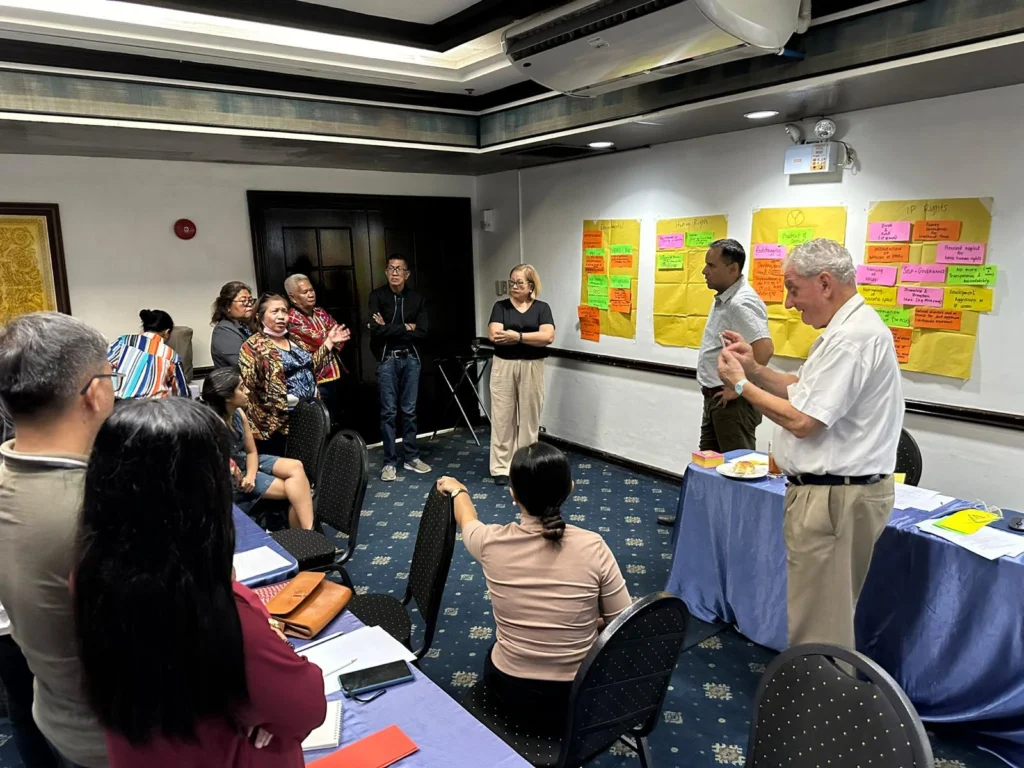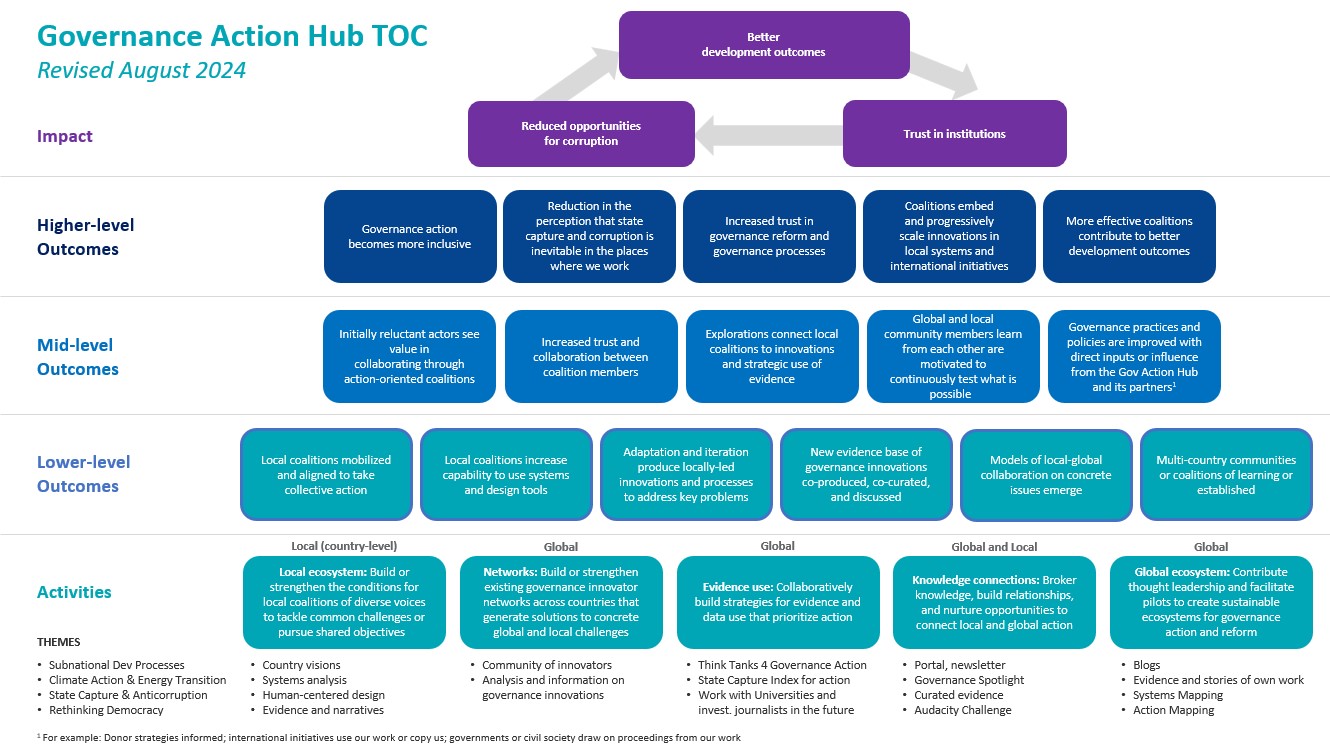Our Approach to Learning
We believe that learning should not be centered on ourselves, but should offer insights to the governance space.

A Learning Approach Fit for our Mission
In this section you will not only find information on how the Governance Action Hub is structured, our theory of change, or our progress reports. We aspire to help others build, improve and succeed in their own journey to governance action and reform. That includes taking a hard look at what we may be tempted to consider success, and being transparent about where we may be failing.
Do you have a story or report to share about our work, or your own work in the governance space? Please share!
Our Theory of Change is a Compass, not a Map
Our theory of change is meant to be adaptive over time. It should lead to specific iterations for each of our initiatives, since our work makes a conscious effort to be demand-driven.
See how in our work, we pursue contributing to change:
Our Learning from Failure
This page will document what we or people involved in our work consider to be failures or struggles while implementing the Governance Action Hub activities. Do not worry if you do not see much at first. We will have lots to report on this page over time.
If failure is not possible, success isn’t either. Mistakes are typically chastised, instead of taken as opportunities to do things better and grow. If we are serious about having an impact, we need to be willing to recognize what we got wrong too.
The incentive system in the development space is biased towards reporting only achievements, perceived or real.
We will also report on what we consider achievements. But as important as those are the lessons from failure or struggles. If you have worked with us and consider we got something wrong, please reach out, and help us make it right and be better.
What we and others are learning
Without pausing to take stock, assess and learn from our work, no real improvements in governance are possible. That is why we document what we’ve been learning in our work, as well as what others doing work on similar things have been learning. Here, we present a couple of resources we’ve found useful.
|
From purposeful to meaningful adaptive programming: how about adaptive operations? This blog by Nicola Nixon emphasizes the importance of adaptability and why this is so hard to do in today’s donor architecture. The Policy Practice’s political economy online library is an annotated bibliography of the latest key accessible readings on this area of development theory and practice, covering: conceptual underpinnings; using PEA tools; thinking and working politically and adaptive management; case studies; and additional resources. Thinking and Working Politically in Development: Coalitions for Change in the Philippines published by the Asia Foundation has been useful in shaping the Governance Action Hub’s approach to coalitions for change. System Shift’s blogs offer perspective on a variety of issues and thinking related to developing new systems or systems innovation, which contrasts with working within current systems and improving them. The blogs and resource navigator on System Innovation, including the Systems Innovation Exploration Framework by the International Development Innovation Alliance offer insights across different themes of systems innovation: Making the Case; Methods and Processes; Theory to Practice; Roles, Power and Purpose. |

